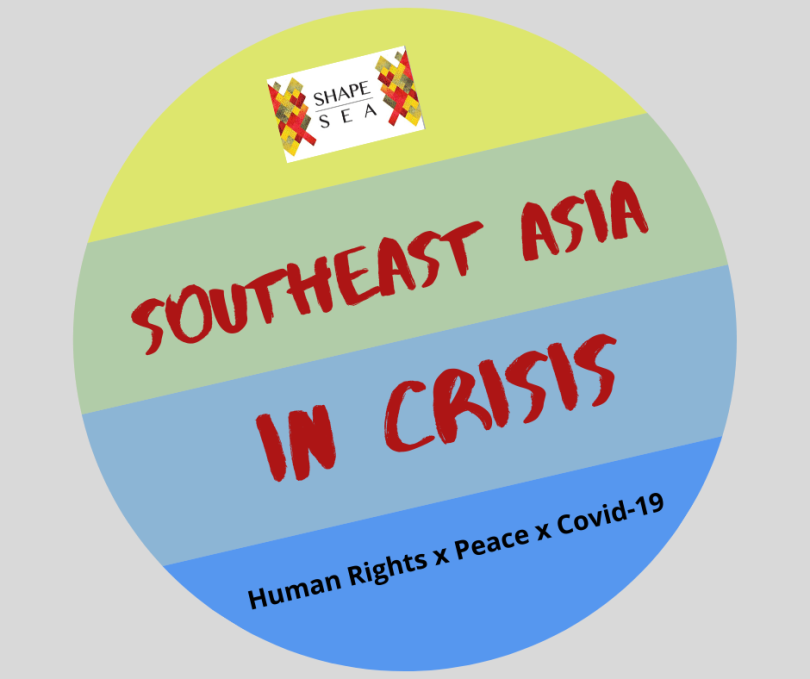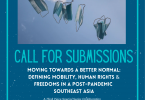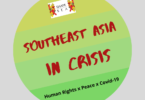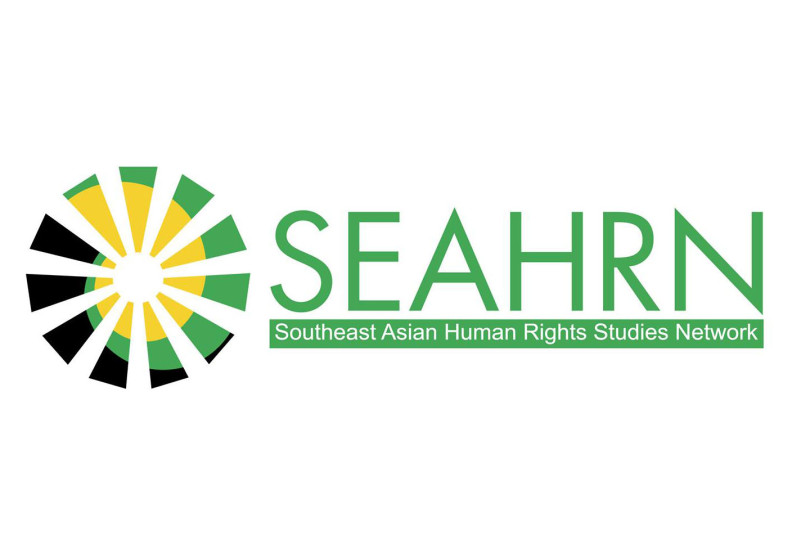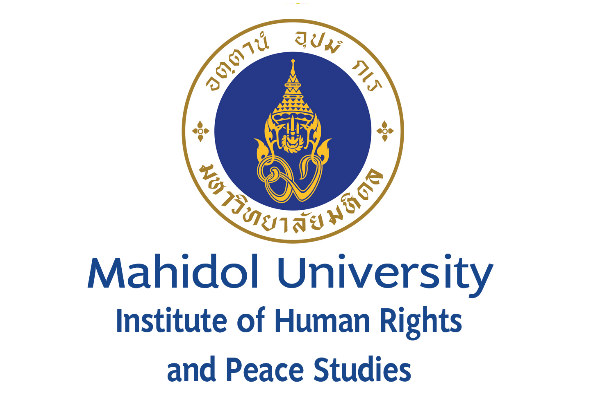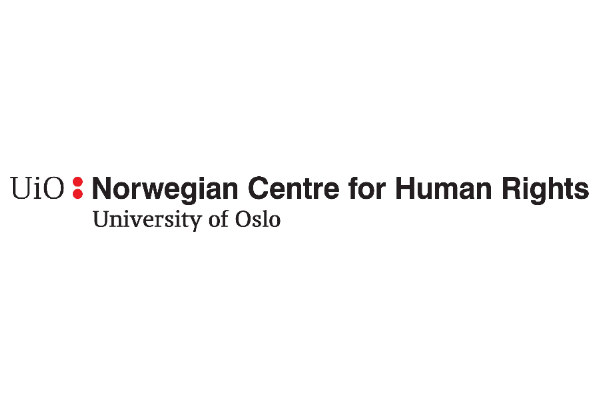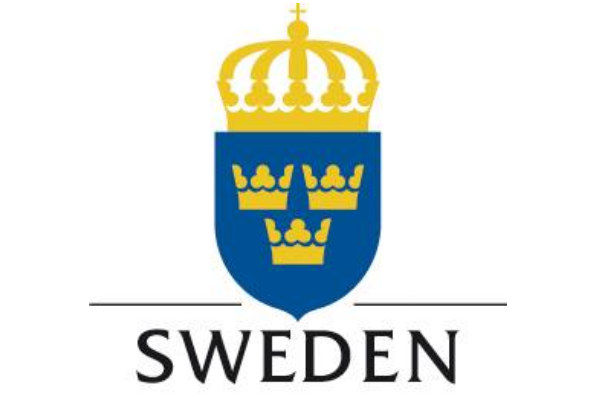Chen, Li Li
Dr. Li Li Chen is a current lecturer at the Department of Political Science, Faculty of Social Sciences, Universidade Nacional Timor Lorosa’e (UNTL) of Timor-Leste. She had a Ph.D. from the University of Florida in 2018. Her research interests include the dynamics of gender and peacekeeping, gender and development, as well as politics in Southeast Asia with a particular focus on Timor-Leste. Her latest publication “Women in Agriculture in Timor-Leste: State of Emergency and COVID-19 Impacts” funded by Oxfam in Timor-Leste supported by the Australian Government through the Department of Foreign Affairs and Trade and Governance for Development Program is accessible at: https://oxfam.box.com/s/himjj6yhhzy5t8on4smawcmoh37tdzr3
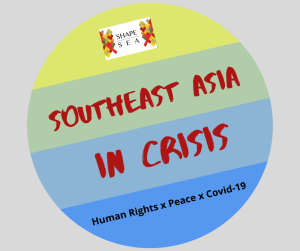 COVID-19 pandemic has become a human rights and democratic crisis worldwide. To date, COVID-19 already infected almost 34 million and caused almost 1 million deaths (Worldmeter, 2020). Many affected states justified the militarization of public health concern, which often took place in the form of suspension and curtailment of political and civil rights of citizens while empowering disproportionately to police and military sector (Chen, 2020). Consequently, it rings alarm about diminishing democracy and human rights for some, while for others, it sharpens the need for strengthening current democratic system and human rights protections.
COVID-19 pandemic has become a human rights and democratic crisis worldwide. To date, COVID-19 already infected almost 34 million and caused almost 1 million deaths (Worldmeter, 2020). Many affected states justified the militarization of public health concern, which often took place in the form of suspension and curtailment of political and civil rights of citizens while empowering disproportionately to police and military sector (Chen, 2020). Consequently, it rings alarm about diminishing democracy and human rights for some, while for others, it sharpens the need for strengthening current democratic system and human rights protections.
The ramifications of securitizing COVID-19 are worrying, since it permits political leaders to gain extensive power or to silence their political opponents. The Philippines president Rodrigo Duterte gained special powers through the passage of the “Bayanihan to Heal as One Act” in March (D. Jr, 2020). Duterte could allocate the national budget and enforce security measures with little check and balance. Meanwhile, Duterte forced to shut down ABS-CBN, a major network, by accusing it of “favoring a political opponent in the 2016 election (Gutierrez, 2020).” What is worse, by empowering the military and the police, his emergency order caused surging cases of human rights violation and killing of citizens (Wurth and Conde, 2020).
It also allows leaders to limit the right of expression and right to correct and immediate information of their people. Take China for example, although the Chinese government was notorious for its early cover-up and spread false or misinformation, it was able to censor and filter information available to the public in the name of preventing fake news (Griffith and Jiang, 2020; Josh, 2020). Articles on the media and social media were deleted on a daily basis, (Schneider, 2020), and foreign journalists were expelled (Human Rights Watch, 2020). Medical staffers who are at the frontlines were prohibited to speak to the public: while deceased Dr. Li Wenliang were investigated and told not to ‘spread the rumor’ by the police, Dr. Ai Fen from the Wuhan Central hospital, went missing after she criticized censorship about the coronavirus in public (BBC, 2020; Reporters without Borders, 2020). It is concerning that citizens might not be able to access to correct and updated information and data behind the reported “numbers” of infected cases and death tolls.
Under the security skin lie in the leaders’ intentions to affirm their authoritarian rule and strengthen the enforcement tools. Securitization puts forth the importance of order and hierarchy which requires obedience and conformity of citizens, which may not come back to normal after the crisis passes.
What is more, securitization distracts the public attention and criticism from governments’ failing responses to COVID-19 pandemic towards some groups relatively disadvantaged and less visible. For instance, the U.S. president Donald Trump’s used ‘Chinese virus’ to shift the attention away from his obvious failure to stop the spread of COVID-19 (Al Jazeera, 2020). As all governments are occupied with COVID-19, securitization risks unleashing and disseminating violence, hatred and resentments fuelled by xenophobia and misogyny against particular vulnerable and minority groups (Tavernise and Oppel Jr., 2020).
Does it mean that we have no way to stop or mitigate the dangerous trend of militarization and its harmful implications to human rights and democracy? It depends on the contexts and how we respond to it. The securitization of COVID-19 may be manipulated, but it also fuels the civic activism as well as popular demands for political reform. In Thailand, pro-democracy students took to the street to defend new constitution and elections, and asked the Prime Minister Prayuth Chan-o-cha to step down (Ratcliffe, 2020). In Philippines, thousands of protesters expressed their collective dissatisfaction towards “the slow, incompetent and militarist response of Duterte’s government to the COVID-19 pandemic (Mongaya, 2020).” In Timor-Leste, journalists and civil-society organizations condemned the government’s move to criminalize defamation (Neon-Metin, 2020). People are pushing back in spite of the government suppression and threat of arrest. Waves of demonstrations as well as political and social disorder could occur under extended lockdown and increasing frustration towards the government (International Crisis Group, 2020).
COVID-19 pandemic has brought about the opportunity of bettering existing democracy and human rights institutions and mechanisms. However, the evidence demonstrates that leaders in both non-democratic and democratic countries could encroach freedom and other basic rights of their citizens through securitizing COVID-19, especially through targeting some minority groups or political dissents and critics. Therefore, in addition to continuously reflecting on the warlike propaganda combating COVID-19 as well as their hidden political agenda, this article reaffirms the importance of the guidelines of UN Human Rights Office of the Higher Commissioner: non-discrimination, legality, necessity, and proportionality (UNCHR, 2020). Any emergency measures need to follow the guidelines in order to put human rights upfront and in the center of policies at all time (Baysa-Barredo, 2020). Despite the various challenges brought upon by securitization of COVID-19, the crisis highlights the need to reformulate and innovate the existing democratic and human rights institutions and mechanisms.
References:
Al Jazeera. (2020). “Trump defends calling coronavirus the “Chinese virus.” Al Jazeera Newsfeed, 23 March 2020. Available at https://www.aljazeera.com/program/episode/2020/3/23/trump-defends-calling-coronavirus-the-chinese-virus/?gb=true. Retrieved on 30 September 2020.
Baysa-Barredo, J. M. (2020). “Problematizing the Securitization of Covid-19 in Southeast Asia: A Necessary Step Towards an Inclusive, Rights-Centred Normal.” SHAPE-SEA, 16 June 2020. Available at https://shapesea.com/op-ed/covid-19/problematizing-the-securitization-of-covid-19-in-southeast-asia-a-necessary-step-towards-an-inclusive-rights-centred-normal/. Retrieved on 30 September 2020.
BBC. (2020). “Li Wenliang: Coronavirus kills Chinese whistleblower doctor.” BBC, 7 February 2020. Available at https://www.bbc.com/news/world-asia-china-51403795. Retrieved on 30 September 2020.
Chen, Li-Li. (2020). “Human rights and democracy amidst militarized covid-19 responses in southeast asia.” E-International Relations, 13 May 2020. Available at https://www.e-ir.info/2020/05/13/human-rights-and-democracy-amidst-militarized-covid-19-responses-in-southeast-asia/. Retrieved on 30 September 2020.
Jr, V. G. (2020). “President Rodrigo Duterte signs R. A. No. 11469 or the Bayanihan to Heal as One Act to respond to COVID-19 pandemic.” Platon Martinez Flores San Pedro & Leano Law Offices. Available at https://platonmartinez.com/articles/president-rodrigo-duterte-signs-r-a-no-11469-or-the-bayanihan-to-heal-as-one-act-to-respond-to-covid-19-pandemic. Retrieved on 30 September 2020.
Gutierrez, J. (2020). “Philippine Congress Officially Shuts Down leading broadcaster.” New York Times, 10 July 2020. Available at https://www.nytimes.com/2020/07/10/world/asia/philippines-congress-media-duterte-abs-cbn.html. Retrieved on 30 September 2020.
Griffiths, James and Steven Jiang. (2020). “Wuhan officials have revised the city’s coronavirus death toll up by 50%.” CNN, 17 April 2020. Available at https://edition.cnn.com/2020/04/17/asia/china-wuhan-coronavirus-death-toll-intl-hnk/index.html. Retrieved on 30 September 2020.
Human Rights Watch. (2020). “‘COVID-19: A Human Rights Checklist.’” Human Rights Watch, 14 April 2020. Available at https://www.hrw.org/news/2020/04/14/ covid-19-human-rights-checklist Retrieved 30 September 2020.
International Crisis Group. (2020). “COVID-19 and conflict: seven trends to watch.” International Crisis Group, 24 March 2020. Available at https://www.crisisgroup.org/global/sb4-covid-19-and-conflict-seven-trends-watch. Retrieved on 30 September 2020.
Josh, R. (2020). “China can’t fight coronavirus and the truth at the same time.” The Washington Post, 27 February 2020. Available at https://www.washingtonpost.com/opinions/global-opinions/china-cant-fight-coronavirus-and-the-truth-at-the-same-time/2020/02/27/bf2e785a-59a4-11ea-9b35-def5a027d470_story.html. Retrieved on 30 September 2020.
K., Mongoya. (2020). “Amid threats of mass arrest, Filipino protesters rally during Duterte’s State of the Nation Address.” Global Voices, 3 August 2020. Available at https://globalvoices.org/2020/08/03/amid-threats-of-mass-arrest-filipino-protesters-rally-during-dutertes-state-of-the-nation-address/. Retrieved on 30 September 2020.
Neon-Metin. (2020). “AJTL ho FMTL rejeita total esborsu lei krimninaliza defamasaun, 3 August 2020.” Neon Metin, 3 August 2020. Available at https://neonmetin.info/buletin/2020/08/03/ajtl-ho-fmtl-rejeita-total-esbosu-lei-kriminaliza-defamasaun/. Retrieved on 30 September 2020.
Reporters without Borders. (2020). “Whistleblowing doctor missing after criticizing china’s coronavirus censorship.” Reporters without Borders, 10 April 2020. Available at https://rsf.org/en/news/whistleblowing-doctor-missing-after-criticizing-beijings-coronavirus-censorship. Retrieved on 30 September 2020.
Rarcliffe, R. (2020). “Thousands gather in Thailand for anti-government protest.” The Guardian, 19 September 2020. Available at
https://www.theguardian.com/world/2020/sep/19/thousands-gather-in-thailand-for-anti-government-protest-bangkok. Retrieved on 30 September 2020.
Reuters/jt. (2020). “‘Shoot them dead’: Philippine president Duterte warns COVID-19 lockdown violators.” Cna, 2 April 2020. Available at https://www.channelnewsasia.com/news/asia/covid-19-philippines-lockdown-duterte-coronavirus-12601384. Retrieved on 30 September 2020.
S., Jordan. (2020). “All the early COVID-19 stories censored off internet.” SupChina, 7 April 2020. Available at https://supchina.com/2020/04/07/all-the-early-covid-19-stories-censored-off-chinese-internet/. Retrieved on 30 September 2020.
Tavernise, S. and Richard A. Oppel Jr. (2020). “Spit on, yelled at, attacked: chinese-americans fear for their safety.” New York Times, 23 March 2020. Available at https://www.nytimes.com/2020/03/23/us/chinese-coronavirus-racist-attacks.html. Retrieved on 30 September 2020.
UNCHR. (2020). “Emergency measures and covid-19: guidance.” UNCHR, 27 April 2020. Available at https://www.ohchr.org/Documents/Events/EmergencyMeasures_COVID19.pdf. Retrieved on 30 September 2020.
Worldmeter. (2020). Available at https://www.worldometers.info/coronavirus/. Retrieved on 30 September 2020.
Wurth, M. and C. Conde. (2020). “Philippine children face abuse for violating COVID-19 curfew.” Human Rights Watch, 3 April 2020. Available at https://www.hrw.org/news/2020/04/03/philippine-children-face-abuse-violating-covid-19-curfew. Retrieved on 30 September 2020.


